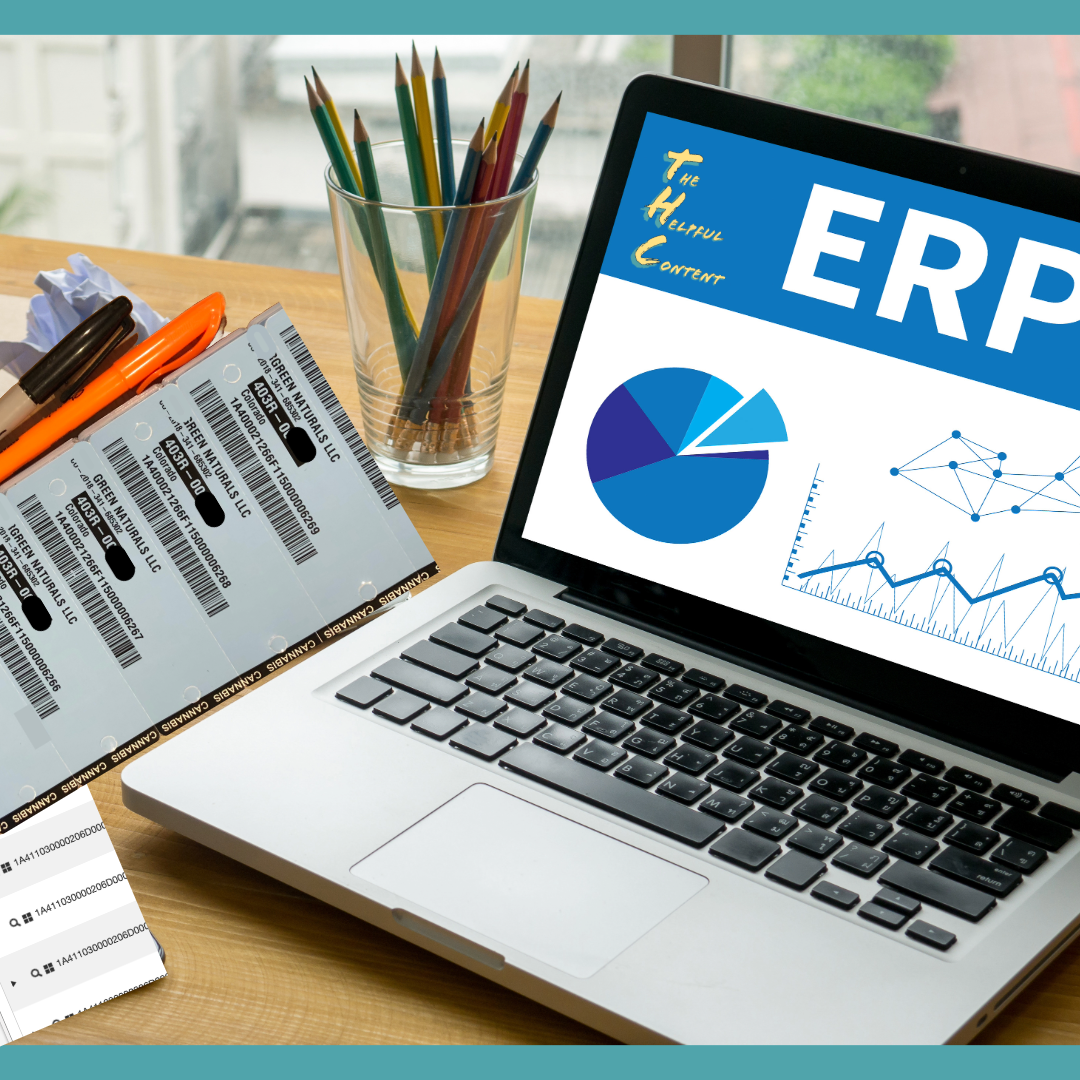In this article, we explore enterprise resource planning for cannabis businesses. Choosing the right Enterprise Resource Planning (ERP) system for your cannabis company is a critical decision that can have a significant impact on your business operations and success. Here are some steps to help you choose the right ERP system:
- Assess Your Business Needs: Understand your company’s specific requirements, including areas such as finance, accounting, inventory management, supply chain, manufacturing, human resources, customer relationship management (CRM), and reporting. Identify pain points and areas for improvement that an ERP system could address.
- Define Your Objectives: Clearly outline your objectives for implementing an ERP system. Determine the goals you want to achieve, such as increasing efficiency, improving visibility into operations, streamlining processes, enhancing decision-making, or supporting business growth.
- Consider Industry-Specific Requirements: Depending on your industry, you may have unique requirements and compliance standards. Look for ERP systems that are tailored to your industry or have the flexibility to accommodate industry-specific needs.
- Evaluate Deployment Options: Decide whether you want an on-premises ERP solution, which is installed and maintained on your company’s servers, or a cloud-based ERP solution, which is hosted and managed by a third-party provider. Consider factors such as cost, scalability, security, accessibility, and IT resources.
- Research ERP Vendors: Research ERP vendors and solutions that are well-suited to your business size, industry, and requirements. Consider factors such as vendor reputation, experience, financial stability, product features, scalability, customer support, and user reviews.
- Attend Demonstrations and Request Trials: Attend product demonstrations or request trials of the ERP systems you are considering. This will allow you to see the software in action, explore its features and functionality, and assess its user interface and ease of use.
- Evaluate Integration Capabilities: Assess how well the ERP system integrates with your existing systems, applications, and databases, such as accounting software, CRM systems, e-commerce platforms, and third-party services. Integration capabilities are crucial for data consistency and workflow automation.
- Consider Customization and Flexibility: Determine the level of customization and flexibility offered by the ERP system. Can it be tailored to meet your specific requirements and workflows? Is it adaptable to future changes and growth within your organization?
- Assess Total Cost of Ownership (TCO): Consider the total cost of ownership of the ERP system, including upfront costs, licensing fees, implementation costs, ongoing maintenance and support fees, training expenses, and potential upgrades or customization costs. Ensure that the ROI justifies the investment.
- Seek Input from Stakeholders: Involve key stakeholders from different departments and levels of your organization in the decision-making process. Gather feedback and insights to ensure that the chosen ERP system meets the needs and expectations of all relevant parties.
- Plan for Implementation and Training: Develop a comprehensive implementation plan that outlines the timeline, milestones, responsibilities, and resources required for a successful deployment. Allocate sufficient time and resources for training employees on how to use the new ERP system effectively.
By following these steps and conducting thorough research and evaluation, you can choose the right ERP system that aligns with your company’s needs, supports your business objectives, and drives long-term success and growth.The right ERP system will guide your overall enterprise resource planning for cannabis businesses.
When considering cannabis ERP systems, there are several other key factors to keep in mind:
- Compliance Management: Compliance is paramount in the cannabis industry due to stringent regulations. A robust cannabis ERP system should have built-in compliance features that help ensure adherence to local and state regulations throughout the entire seed-to-sale process.
- Seed-to-Sale Tracking: The ability to track cannabis products from seed to sale is essential for regulatory compliance and product safety. Look for ERP systems that offer comprehensive seed-to-sale tracking functionality, including inventory management, batch tracking, and reporting capabilities.
- Inventory Management: Effective inventory management is crucial for optimizing operations and maintaining compliance. A cannabis ERP system should provide real-time visibility into inventory levels, track batch and lot numbers, manage expiration dates, and support inventory reconciliation processes.
- Quality Control and Testing: Cannabis products must undergo rigorous testing to ensure safety and quality. Choose an ERP system that facilitates quality control processes, manages testing requirements, tracks test results, and enables product traceability.
- Integration Capabilities: Cannabis businesses often use a variety of software solutions for different aspects of their operations, such as POS systems, accounting software, and e-commerce platforms. An ERP system with robust integration capabilities can streamline workflows and ensure data consistency across all systems.
- Scalability: As your cannabis business grows, your ERP system should be able to scale accordingly to accommodate increased demand, expanded product lines, and additional regulatory requirements. Choose a scalable ERP solution that can grow with your business over time.
- Security and Data Privacy: Data security is critical in the cannabis industry, given the sensitive nature of customer and product information. Select an ERP system that prioritizes data security and compliance with industry standards for data privacy, such as HIPAA and GDPR.
- User-Friendly Interface: A user-friendly interface is essential for ensuring that employees can easily navigate the ERP system and perform their tasks efficiently. Look for intuitive design, customizable dashboards, and comprehensive training and support resources to help users get up to speed quickly.
- Customer Support: Choose an ERP vendor that provides reliable customer support services to assist with implementation, training, ongoing maintenance, and troubleshooting issues that may arise. Responsive customer support can help minimize downtime and ensure a smooth user experience.
- Cost Considerations: Consider the total cost of ownership, including upfront implementation costs, licensing fees, ongoing maintenance and support expenses, and potential upgrades or customization costs. Evaluate the ROI of the ERP system based on the value it delivers to your cannabis business.
By considering these factors and conducting thorough research, you can select a cannabis ERP system that meets your business needs, supports regulatory compliance, and helps optimize your operations for success in the rapidly evolving cannabis industry. But if these 21 tips for choosing the right cannabis ERP system isn’t enough. Let us help more! Checkout our FREE Guide for Choosing a Cannabis ERP





